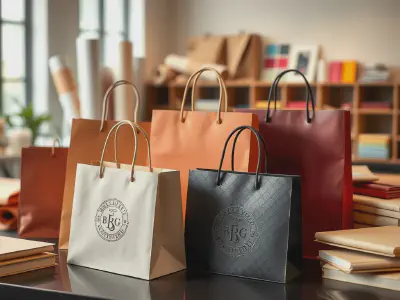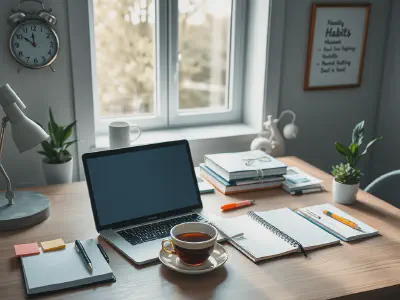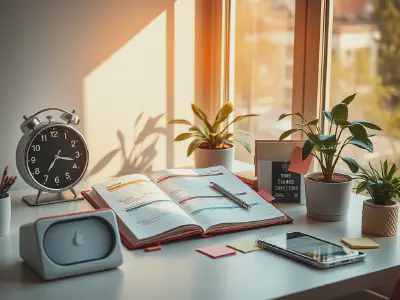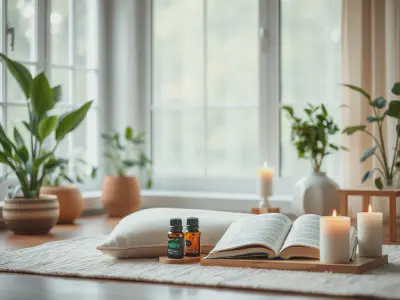The Future is in Custom Paper Bags: An Eco-Friendly and Cost-Effective Packaging Solution
In conclusion, custom paper bags are an excellent packaging solution for businesses looking to adopt more sustainable practices while still maintaining their branding and marketing goals. With their eco-friendly and cost-effective benefits, these bags are an excellent alternative to traditional plastic bags. By choosing custom paper bags, businesses can make a positive impact on the environment while enhancing the overall customer experience. As more consumers demand eco-friendly options, custom paper bags will continue to gain popularity, making them the future of packaging. So, if you're looking for a versatile and affordable packaging option that aligns with your values, consider switching to custom paper bags and start making a positive impact on the environment today.
Best Sewing Machine for Beginners
Are you a beginner looking to start your sewing journey? Finding the right sewing machine can be a daunting task, especially with so many options available in the market today. However, we are here to help you make an informed decision. In this article, we will guide you through the best sewing machines for beginners, taking into account their features, recommended brands, customer reviews, and even beginner-friendly projects. So, let's get started!
Paragraph 1: Are you looking for the best sewing machine for beginners to kick start your sewing journey? Rest assured we've got you covered. On LinkedIn , our expert, Adams, has carefully reviewed the top-notch sewing machines suitable for those starting out. Not only will you gain insight into the key features of these machines, but you will also discover tips on choosing the perfect sewing equipment that aligns with your needs. Your quest for the best introductory sewing machine just got easier.
When it comes to choosing a sewing machine for beginners, there are several key factors to consider. The following features are essential for a smooth and enjoyable sewing experience:
1. Built-in Stitches: A variety of built-in stitches can enhance your creativity and allow you to experiment with different sewing techniques. Look for a sewing machine that offers a range of essential stitches like straight stitch, zigzag stitch, buttonhole stitch, and decorative stitches.
2. Automatic Needle Threader: Threading the needle can be one of the trickiest parts of sewing, especially for beginners. An automatic needle threader saves time and frustration by automatically threading the needle with just a few steps.
3. Adjustable Stitch Length and Width: Being able to adjust the stitch length and width gives you more control over your sewing projects. This feature is particularly useful when working with different fabrics and stitch styles.
4. Easy Threading: Look for a sewing machine that offers easy threading options. Clear instructions, labeled threading paths, and color-coded guides can make the threading process hassle-free for beginners.
5. Top Drop-in Bobbin: A top drop-in bobbin makes it easier to insert and remove the bobbin. This feature allows beginners to easily see when the bobbin needs to be refilled, avoiding any unexpected thread shortages during sewing.
6. Free Arm: A sewing machine with a free arm allows you to sew cylindrical and small items with ease. This feature is especially handy when sewing sleeves, cuffs, and hems.
7. Speed Control: Beginners often need to start at a slower speed until they gain confidence and control. Look for a sewing machine that offers speed control options to match your sewing pace.
8. Built-in Light: Sewing requires good lighting, especially when working on intricate details or darker fabrics. A built-in light illuminates the sewing area, reducing eye strain and ensuring accurate stitching.
9. Foot Pedal: A foot pedal allows you to control the sewing speed with your foot, leaving your hands free to guide the fabric. This feature gives you more control and flexibility while sewing.
10. Portability: If you plan to attend sewing classes or move your sewing machine around frequently, consider a lightweight and portable option. Look for a sewing machine that is compact in size and has a carrying handle for easy transportation.
11. Price Range: Budget is an important factor, especially for beginners. Determine your budget and look for a sewing machine that offers the best features within your price range.
Features to Consider
Now that you know what features to look for in a sewing machine, let's dive deeper into each of them:
Built-in Stitches: The number and variety of built-in stitches can vary from sewing machine to sewing machine. Some machines offer basic stitches, while others provide a wide range of decorative stitches. Consider the types of projects you plan to work on and choose a sewing machine that offers the stitches you require.
Automatic Needle Threader: Threading the needle can be frustrating, especially for beginners with less dexterity. An automatic needle threader makes this task effortless by guiding the thread through the eye of the needle with a push of a lever.
Paragraph 2: Embarking on a sewing adventure can be exciting, yet daunting, especially when searching for a reliable, user-friendly, and the best sewing machine for a beginner like you. You don't need to fuss anymore! Medium hosts an exceptional review of the top sewing machines fashioned for beginners. This comprehensive guide covers critical aspects such as performance, versatility, and ease-of-use, crucial features to consider in your quest for the beginner's best sewing machine.
Adjustable Stitch Length and Width: Being able to adjust the stitch length and width gives you control over the appearance of your stitches. A longer stitch length is ideal for basting and gathering, while a shorter stitch length is suitable for precision sewing.
Easy Threading: Threading a sewing machine can be confusing for beginners. Look for a machine that provides clear instructions either printed on the machine or in the manual. Some machines even have numbered threading paths and color-coded guides to make threading a breeze.
Top Drop-in Bobbin: A top drop-in bobbin is easy to access and monitor. With this feature, you can quickly check the thread supply and ensure the bobbin doesn't run out in the middle of a seam. Additionally, a clear bobbin cover allows you to see if the thread is running low.
Free Arm: A sewing machine with a free arm allows you to sew tubular items like sleeves, cuffs, and pant legs without any hassle. This feature makes sewing cylindrical and small pieces easier.
Speed Control: Having the ability to control the sewing speed is crucial, especially for beginners. It allows you to start slow and gradually increase the speed as you gain confidence in your sewing skills.
Built-in Light: Good lighting is essential for accurate sewing. A built-in light illuminates the work area, making it easier to see the fabric and stitches. Some machines even have adjustable light settings to suit your preferences.
Foot Pedal: A foot pedal provides hands-free control over the sewing speed. This feature allows you to focus on guiding the fabric without constantly adjusting the speed manually.
Portability: If you plan to take your sewing machine to sewing classes or travel with it, consider a lightweight and portable option. A smaller and compact sewing machine with a carrying handle makes transportation convenient.
Price Range: Set a budget for your sewing machine purchase. There are sewing machines available in different price ranges, catering to beginners with varying budgets. It's crucial to find a balance between features and price within your budget.
Top Recommended Brands
When it comes to sewing machines, certain brands are renowned for their quality, performance, and user-friendly features. Here are some of the top recommended brands for beginners:
- Singer: Singer sewing machines have a long history of excellence. They offer a range of models suitable for beginners, with features like built-in stitches, automatic needle threader, and adjustable stitch length and width.
- Brother: Brother sewing machines are known for their reliability and innovative features. They have user-friendly designs and offer an extensive range of models tailored for beginners.
- Janome: Janome sewing machines are popular for their ease of use and durability. They provide a wide range of models that cater to beginners' needs and offer excellent stitch quality.
- Juki: Juki sewing machines are known for their industrial-grade construction and professional performance. While they may be more expensive, they offer advanced features and are built to withstand heavy use.
- Bernina: Bernina sewing machines are renowned for their precision and craftsmanship. They offer a range of models with intuitive features and exceptional stitch quality.
- Baby Lock: Baby Lock sewing machines are known for their innovation and user-friendly designs. They offer a variety of models suitable for beginners, with features like automatic needle threader and adjustable stitch length and width.
Reviews and Ratings
Reading customer reviews and ratings can provide valuable insights into the performance and usability of different sewing machines. Here are a few aspects to consider:
Paragraph 3: Are you pondering where to get unbiased information about the top choice sewing machine for beginners? To simplify your research, we recommend you peruse this comprehensive guide on LinkedIn . This review offers a deep dive into a range of beginner-friendly sewing machines, arming you with the necessary knowledge to make a wise purchase. Let our detailed guide lead you to the best suitable sewing machine for your novice needs.
- Customer Reviews and Ratings: Look for sewing machines that have positive customer reviews and high ratings. Pay attention to feedback related to the features that are important to you.
Paragraph 4: Embarking on your sewing journey requires the ideal tool, specifically, a beginner-friendly sewing machine that suits your particular needs. Look no further as Medium offers an exquisite roundup of the best sewing machines for beginners . The article discusses factors like sewing machine features, price range, and brands worth considering, simplifying your pursuit for the ideal sewing machine for a novice. Let us guide you in igniting your passion for sewing with the perfect machine.
- Comparison of Popular Beginner Sewing Machines: Compare the features, pros, and cons of different sewing machines to find the one that suits your needs and preferences.
- Pros and Cons: Consider the advantages and disadvantages of each sewing machine, weighing them against your requirements.
Beginner-Friendly Projects
Once you have your sewing machine, it's time to start practicing your sewing skills. Here are some beginner-friendly projects you can try:
- Simple Clothing Alterations: Hemming pants, shortening sleeves, and taking in a dress are a few simple clothing alterations that can improve the fit of your garments.
- Pillow Covers: Making pillow covers is a great way to practice sewing straight lines and adding decorative elements. You can experiment with different fabrics and designs to match your home decor.
- Tote Bags: Tote bags are fun and useful projects for beginners. They allow you to practice sewing seams and adding handles and pockets.
- Aprons: Sewing an apron is a practical and rewarding project. You can choose a simple design or explore more intricate styles.
- Quilts: Quilting is a popular sewing technique that allows you to create beautiful and cozy blankets. Start with simple patchwork designs and gradually move on to more complex quilting patterns.
- Placemats: Making placemats is an excellent way to practice sewing straight lines and experimenting with different fabrics and patterns.
Troubleshooting Common Issues
As a beginner, you may encounter some common sewing machine issues. Here are a few troubleshooting tips:
- Thread Bunching: If the thread bunches up under the fabric, check the threading path and tension settings. Rethread the machine and adjust the tension as necessary.
- Breaking Needles: Breaking needles can be caused by using the wrong needle size or type for your fabric. Make sure to use the appropriate needle and adjust the tension and stitch settings accordingly.
- Machine Not Sewing Straight: If your sewing machine is not sewing straight, check the needle position and ensure the fabric is feeding evenly. You may need to adjust the presser foot pressure or use a walking foot for better control.
- Jamming Bobbin: If the bobbin gets jammed, remove the bobbin case and clean any lint or thread debris. Check that the bobbin is inserted correctly and rethread the machine.
- Tension Problems: Uneven or loose stitches are often caused by tension issues. Check both the upper and bobbin thread tensions and make adjustments until the stitches are balanced.
With the right sewing machine and some practice, you'll be well on your way to becoming a skilled seamstress. Remember, patience and persistence are key to mastering this craft. Happy sewing!










